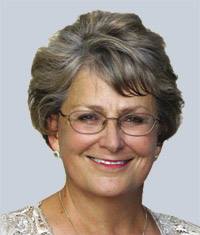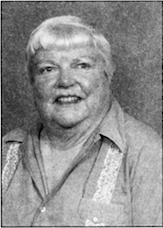Related Research Articles

The history of the petroleum industry in the United States goes back to the early 19th century, although the indigenous peoples, like many ancient societies, have used petroleum seeps since prehistoric times; where found, these seeps signaled the growth of the industry from the earliest discoveries to the more recent.

Carter County is a county in the U.S. state of Oklahoma. As of the 2020 census, the population was 48,003. Its county seat is Ardmore. The county was named for Captain Ben W. Carter, a Cherokee who lived among the Chickasaw.

Ardmore is the county seat of Carter County, Oklahoma, United States. According to the 2010 census, the city had a population of 24,283, with an estimated population of 24,698 in 2019. The Ardmore micropolitan statistical area had an estimated population of 48,491 in 2013. Ardmore is 90 miles (140 km) from both Oklahoma City and Dallas/Fort Worth, Texas, at the junction of Interstate 35 and U.S. Highway 70, and is generally considered the hub of the 13-county region of South Central Oklahoma, also known by state tourism pamphlets as "Chickasaw Country" and previously "Lake and Trail Country". It is also a part of the Texoma region. Ardmore is situated about 9 miles (14 km) south of the Arbuckle Mountains and is located at the eastern margin of the Healdton Basin, one of the most oil-rich regions of the United States.

Sunoco LP is an American master limited partnership organized under Delaware state laws and headquartered in Dallas, Texas. Dating back to 1886, the company has transitioned from a vertically integrated energy company to a distributor of fuels. It was previously engaged in oil, natural gas exploration and production, refining, chemical manufacturing, and retail fuel sales, but divested these businesses. Sunoco is the largest independent distributor of fuels in the United States.

The Canadian Association of Petroleum Producers (CAPP), with its head office in Calgary, Alberta, is a lobby group that represents the upstream Canadian oil and natural gas industry. CAPP's members produce "90% of Canada's natural gas and crude oil" and "are an important part of a national industry with revenues of about $100 billion-a-year ."
Denise Bode is a nationally recognized energy policy expert and a former Corporation Commissioner of that state.
Jeff Cloud is an American Republican politician from the U.S. state of Oklahoma. Jeff Cloud was elected statewide to a six-year term on the Oklahoma Corporation Commission on November 5, 2002, and assumed the chairmanship of the Commission in June 2005. He was re-elected to another six-year term on November 4, 2008. However, Cloud resigned from the Commission in October 2011.
A Landman or "Petroleum Landman"—in the United States and Canada—is an individual who performs various services for oil and gas exploration companies. According to the website of the American Association of Professional Landmen (AAPL), these services include but are not limited to: negotiating for the acquisition or divestiture of mineral rights; negotiating business agreements that provide for the exploration and/or development of minerals; determining ownership in minerals through the research of public and private records; reviewing the status of title, curing title defects and otherwise reducing title risk associated with ownership in minerals; managing rights and/or obligations derived from ownership of interests in minerals; and unitizing or pooling of interests in minerals.

Petroleum has been a major industry in the United States since shortly after the oil discovery in the Oil Creek area of Titusville, Pennsylvania, in 1859. The industry includes exploration, production, processing (refining), transportation, and marketing of natural gas and petroleum products. In 2018, the U.S. became the world's largest crude oil producer, producing 15% of global crude oil, surpassing Russia and Saudi Arabia. The leading oil-producing area in the United States in 2019 was Texas, followed by the offshore federal zone of the Gulf of Mexico, North Dakota and New Mexico. In 2020, the top five U.S. oil-producing states were Texas (43%), North Dakota (10.4%), New Mexico (9.2%), Oklahoma (4.1%), and Colorado (4.0%).
Energy Management (EM) is a business-specific degree, with a broad curriculum focusing on multiple facets of the energy industry: business, geology, petroleum engineering, and law. The American Association of Professional Landmen (AAPL) provides curriculum guidance and program support for approved petroleum land management programs. Currently, the AAPL has 10 accredited universities in the United States and Canada.
Carl Michael "Mike" Smith is an American businessman, energy expert, and politician from Oklahoma. Smith is currently serving as the Executive Director of the Interstate Oil and Gas Compact Commission. Smith has served in numerous energy policy positions for both the United States federal and Oklahoma state governments, including Assistant Secretary of Energy for Fossil Energy under President George W. Bush (2002–2004) and Oklahoma Secretary of Energy under Governor of Oklahoma Frank Keating (1995–2002).
The American Association of Professional Landmen (AAPL) is a professional organization in the United States that unites approximately 18,000 landmen and land-related persons in North America through professional development and service. AAPL's mission is to promote standards of performance for all land professionals, to advance their stature and to encourage sound stewardship of energy and mineral resources.

The Oklahoma Secretary of Energy is a member of the Oklahoma Governor's Cabinet. The Secretary is appointed by the Governor, with the consent of the Oklahoma Senate, to serve at the pleasure of the Governor. The Secretary serves as the chief advisor to the Governor on energy policy development and implementation.
The Foundation for Natural Resources and Energy Law, formerly Rocky Mountain Mineral Law Foundation, is an educational, non-profit organization dedicated to the scholarly and practical study of all aspects of natural resources and energy law.

The Interstate Oil and Gas Compact Commission (IOGCC), formerly the Interstate Oil Compact Commission, is a United States organization, representing the governors of 31 member and seven associate states, that works to ensure the nation's oil and natural gas resources are conserved and utilized to their maximum potential while protecting health, safety and the environment.
The United States Oil & Gas Association, formerly the Mid-Continent Oil & Gas Association, is a trade association which promotes the well-being of the oil and natural gas industries in the United States. Primarily, the organization focuses on the production of these resources. Other organizations exist to deal with concerns of transportation, refining and processing, and other discrete functions of the fossil fuel industry.
Opaline Deveraux Wadkins (1912–2000) organized the first school to train black nurses in Oklahoma City, fought for desegregation of the College of Nursing at the University of Oklahoma and founded the School of Nursing at Langston University. She was the first African American nurse to earn a master's degree from the University of Oklahoma. She was honored in 1987 by the Oklahoma Public Health Association and inducted into the Oklahoma Women's Hall of Fame in 1993.

Robbie Rice Gries is an American petroleum geologist who was the first female president (2001–02) of the American Association of Petroleum Geologists (AAPG), president of the Geological Society of America (2018–19), and founder of Priority Oil & Gas LLC. Gries is noted to have made some influential progress for women in this field. In 2017, Gries published the book titled Anomalies—Pioneering Women in Petroleum Geology: 1917-2017. Gries is recognized as an unconventional thinker when approaching geological concepts and applications.

Suzanne Takken was a petroleum geologist for the Magnolia Oil Company. She retired in 1970 but continued to work as a consultant in several areas of geology including construction, geothermal, petroleum, and uranium. She was a Charter Member of the Oklahoma City Geological Foundation, a member of the American Association of Petroleum Geologists (AAPG) and of the Association of Women in Geoscience (AWG), as well as a past president of both the Oklahoma section of American Institute of Professional Geologists and the Oklahoma City Geological Society. Later in her career the Suzanne Takken Encourage Award (1990) and the Suzanne Takken Memorial Fund (1998) were established in her honour.
Susan Margaret Cunningham is a Canadian geologist and management figure in the global oil and gas industry. Cunningham has worked in the petroleum field since 1980, occupying various exploration and development roles within Amoco, Statoil ASA, and Noble Energy Inc. Her career has focused on the management of resource exploration projects in West Africa and the Deepwater Gulf of Mexico. Cunningham is a member of the board of directors of Chord Energy. Over the span of her career, Cunningham has been recognized for exemplary leadership ability and professional achievement by organizations not limited to the National Diversity Council and the ASME.
References
- 1 2 3 "June Brooks". The Daily Ardmoreite. Ardmore, Oklahoma. September 1, 2010. Retrieved 30 October 2015.
- ↑ The Interstate Oil & Gas Compact & Committee Bulletin 1992, p. 55.
- 1 2 3 4 "June Brooks". The Oklahoman. Oklahoma City, Oklahoma. September 1, 2010. Retrieved 30 October 2015.
- ↑ The Landman 1987, p. 48.
- ↑ American Gas Association Monthly 1980, p. 37.
- ↑ "12 Oil Industry Officials To Be Honored in Tulsa". Oklahoma City, Oklahoma: News OK. October 24, 1982. Retrieved 30 October 2015.
- ↑ "Hearing to View Reductions in Natural Gas Allowables". Oklahoma City, Oklahoma: The Journal Record. February 17, 1987. Retrieved 30 October 2015.